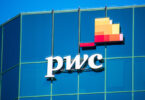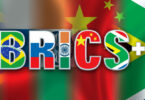Today blockchain trade finance network Marco Polo announced that the Standard Bank Group will be a new member. Johannesburg-based Standard Bank is the biggest in Africa by assets and will be joining the likes of ING and BNP Paribas on the distributed network.
Marco Polo focuses on increasing trade finance efficiency by integrating ERP systems with the blockchain platform. It already has Microsoft Dynamics 365, Xero, and Oracle Netsuite working. The network offers various solutions from payment commitment to receivable discounting. It is built on R3’s Corda enterprise blockchain by Irish technology startup TradeIX.
Standard Bank, which is present in 20 African countries, will now be able to contribute to the governance of Marco Polo while also taking advantage of its blockchain-powered applications.
The firm’s Trade and Product Management lead Kevin Holmes said: “Standard Bank is constantly looking for ways to provide best-in-class trade finance products to our customers to help them grow their business and achieve their potential.”
“Joining the Marco Polo Network and leveraging the best technology and practices in the sector, allows us to actively participate in building the future of trade financing,” he continued.
Daniel Cotti, the Chief Network Officer of Marco Polo, agreed with the sentiment: “Close collaboration between leading international financial institutions, their clients and business partners is critical to success. Welcoming Standard Bank as a new member of our fast-growing network is another key step to deliver on our mission.”
Marco Polo members include Alfa Bank, Anglo Gulf Trade Bank, Bangkok Bank, Bayern LB, BNP Paribas, Bradesco, Commerzbank, Danske Bank, DNB, Helaba, ING, LBBW, Natixis, Natwest, OP, Raiffeisen Bank, SMBC, S-Servicepartner and Standard Chartered.
For now, Marco Polo is currently focusing on trade finance for larger organizations, not smaller enterprises like the competing we.trade network. Marco Polo is currently in the pilot phase for some banks such as Commerzbank and LBBW.
Though when it comes to trade finance consortiums, there’s a lot of overlap. R3 provides the underlying blockchain for both Marco Polo and Voltron, which share many members, including ING, BNP Paribas, and Natwest. However, Voltron focuses on Letters of Credit, as does komgo.
Meanwhile, IBM initially developed the technology for we.trade, which also includes Natixis.







